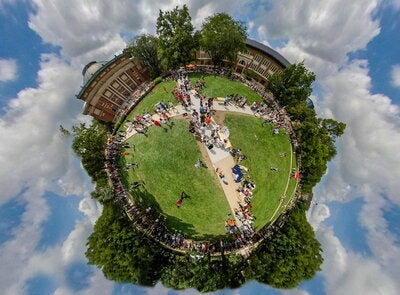
What we believe

The community of biologists in the School of Molecular & Cellular Biology at the University of Illinois is committed to understanding life at the organismal, cellular, and molecular levels. Our fundamental understanding of the natural world directly impacts human health, the health of the environment, and our broader culture and society. Thus, innovation, drive, and excellence are critical to our mission.
Our entire community firmly believes that scientific discovery and advances in the life sciences can be made by anyone, and that diversity within our school drives the innovation that keeps MCB research at the forefront of scientific discovery. However, we recognize that societal, academic, and structural barriers have often kept talented individuals out of our community.
We are committed to eliminating these barriers and supporting students and scientists of all backgrounds, both to push our science to new heights and to fulfill our mission as an educational institution. We condemn racism and sexual harassment, which have long held back both individuals and science as a whole. We will not tolerate discrimination on the basis of gender, ethnicity, sexual orientation, disability status, national origin, religion, neurological differences, or socioeconomic status.
We welcome and strive to support all students as they think deeply about the molecular basis of life, work hard to understand basic biology, and share their scholarship with others.
School of MCB Diversity, Equity & Inclusion Committee
Campus resources
Office of the Vice Chancellor for Diversity, Equity & Inclusion
Student Success, Inclusion & Belonging (including Jeffries Center for Access and Academic Success, First-gen students, cultural houses, and more.)
Office of the Dean of Students (including Emergency Dean, Community of Care, and more.)
Graduate College Diversity, Equity, & Inclusion
Land acknowledgement
As a land-grant institution, the University of Illinois Urbana-Champaign and the School of Molecular & Cellular Biology, have a responsibility to acknowledge the historical context in which it exists. In order to remind ourselves and our community, we begin events with the following statement.
We are currently on the lands of the Peoria, Kaskaskia, Piankashaw, Wea, Miami, Mascoutin, Odawa, Sauk, Mesquaki, Kickapoo, Potawatomi, Ojibwe, and Chickasaw Nations. It is necessary for us to acknowledge these Native Nations and for us to work with them as we move forward as an institution. Over the next 150 years, we will be a vibrant community inclusive of all our differences, with Native peoples at the core of our efforts.